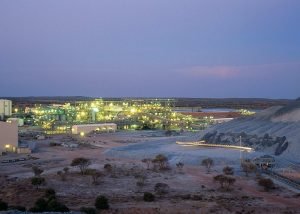
THE CFMEU has lost its appeal of an important union ‘right of entry’ decision that clarifies that union permit holders can only enter a premises to hold discussions with employees during their allocated work breaks, and not before or after.
The matter involving BHP Billiton’s Nickel West mine initially drew attention due to the union’s challenge of the term ‘other breaks’ under the Fair Work Act 2009.
The original ruling
As previously analysed by AREEA, this dispute was triggered in October 2015 when two CFMEU workers attempted to use the FW Act’s right of entry provisions to enter BHP’s Billiton Nickel West premises to meet two contractors for discussions.
The CFMEU applied to the Fair Work Commission to determine whether the union’s interpretation of the terms ‘other breaks’ enabled the CFMEU officials to enter the premises. The union was testing whether its permit holders had a legal right to be at the premises to hold discussions with workers before or after their shifts.
The original dispute included three components: whether the Commission had jurisdiction to hear the matter; whether the resolution required an exercise of judicial power; and an interpretation of the legislation relating to ‘other breaks’.
BHP opposed the original application and objected on the grounds the contractors’ work at the premises was finished and there was no existing dispute to enliven the Commission’s jurisdiction.
It was concluded the CFMEU matter involved an exercise of judicial power and was therefore outside the Commission’s jurisdiction.
Importantly, the Commission also concluded that times before and after workers’ shifts were not ‘other breaks’ and therefore the CFMEU could not exercise right of entry for discussions at such times.
The Commission further investigated the term ‘other breaks’ and determined it was clearly explained in the legislation.
Grounds of Appeal
The CFMEU appealed on the grounds that the single commissioner:
- wrongly refused to exercise the jurisdiction conferred on the Commission by 505 of the Act;
- erred in concluding that the CFMEU’s application was beyond the jurisdiction of the Commission because the CFMEU was seeking to have the Commission exercise judicial power;
- failed to find that the application was concerned with the regulation of future rights by permit holders and what obligations, if any, should be imposed on the CFMEU when those rights were exercised, irrespective of the fact that the evidence in the case concerned past conduct of the CFMEU at the relevant time;
- failed to find that the meaning of the words ‘other breaks’ in 490(2) of the Act included times before and after an employee’s shift so long as the discussions that were to be had were held during the working hours of the premises; and
- failed to have regard to the Explanatory Memorandum accompanying the enactment of s.490(2) of the Act in circumstances where the words ‘other breaks’ were ambiguous and unclear, or alternatively, where it was necessary to take into account the general policy and purpose of s.490(2) to establish both the mischief to which it was directed, the policy of the provision and so as to better understand the intended operation of the section.
A Full Bench of the Fair Work Commission granted the appeal on the grounds it was in the public interest to investigate the jurisdictional issues of the Commission’s exercise of power in relation to right of entry matters.
However, the original decision was upheld and the appeal was dismissed.
“We have concluded that the commissioner was correct in his conclusion that the Commission lacks jurisdiction to determine the dispute because to do so would be to be to impermissibly purport to exercise judicial power,” Vice president Graeme Watson said.
Implications for employers
The implications for employers as advised by AREEA following the original decision remain relevant. These include:
- Employers must have an understanding of the right of entry provisions contained within the FW Act to ensure unions are not hindered in exercising their lawful rights, while not having unfettered access which disrupts the employer’s business; and
- The decision clarifies that permit holders have a lawful right to hold discussions in breaks that occur during the course of the working day, not before or after, and only during those breaks which cause the least disruption to the employer’s business.
For more information about this matter or for any advice relating to union site entry requests, contact one of AREEA’s specialist workplace relations consultants via your local AREEA office.



